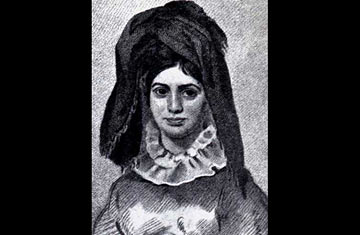
In 1817, a mysterious, attractive woman surfaced in a small village near Bristol, England. She wore a dark turban and spoke a language that was unintelligible to baffled locals. Though she was at first assumed to be a foreign peasant, the woman — with help of a Portuguese sailor who claimed to understand her dialect — managed to convince her hosts that she was, in fact, a princess from an island called Javasu. Princess Caraboo, as she became known, spun an engrossing saga about having been abducted by pirates, whom she escaped by jumping overboard and swimming to shore through the stormy English Channel.
It was a fantastical tale, and Princess Caraboo quickly vaulted to fame. But it was, of course, too good to be true. After reading her story in a local newspaper, a woman outed Caraboo, noting that the phony Princess — whom the woman had employed as a servant — had entertained children by speaking in invented tongues. Princess Caraboo, it turned out, came from no more exotic a locale than Devonshire, England, where she was born Mary Baker, the daughter of a cobbler. Thanks to its sheer audacity, the stunt has earned a place in the scammer's canon; in 1994, it was turned into a feature film starring Phoebe Cates.